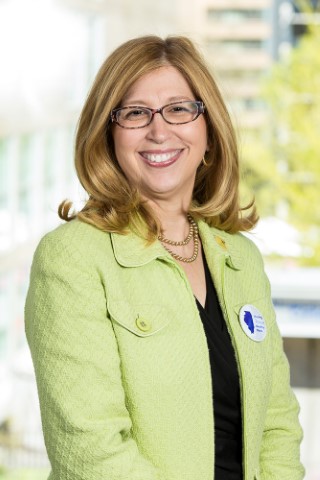
Endocrine News spoke with four of this year’s Early Career Forum speakers to get a sneak peek of their presentations at ENDO 2016 in Boston. In this installment, we talk with Teresa K. Woodruff, PhD, of Northwestern University.
Next month at ENDO 2016 in Boston, physicians and researchers just starting out will have the opportunity to gain valuable insight and information from some of the world’s leading endocrinologists in the Early Career Forum. The speakers will be presenting on a number of topics, from tips on getting papers published to developing business acumen.
This prestigious forum for all of the next generation of endocrinologists – graduate students, medical students, post-doc fellows, and clinical fellows – also provides a unique opportunity for basic scientists, clinical investigators, and clinical practitioners to share their ideas and experiences among each other.
But perhaps the most beneficial aspect of the forum is the fact that attendees can look to the forum’s speakers and moderators as experienced mentors, all of whom have tales and tips to share, informed by their own successes and hardships in their respective fields.
Woodruff is the director of the Women’s Health Research Institute at Northwestern University Feinberg School of Medicine, as well as chief of that school’s Division of Obstetrics and Gynecology-Fertility Preservation. She’s also an accomplished professor and mentor, named Feinberg School’s Faculty Mentor of the Year in 2009. A former president of the Endocrine Society, she was included on the Time Magazine 2013 list of the World’s Most Influential People, the only scientist to make the list.
Why is it important for your Bench to Bedside plenary lecture to be at ENDO, and especially the Early Careers Forum?
The Early Career Forum provides the first of many venues offered by the Endocrine Society to bring basic scientists together with clinical investigators and clinicians in practice – so having a plenary lecture that bridges the disciplines is a terrific way to model the way endocrine science is done.
What can attendees expect to learn from your lecture?
The lecture will describe how fundamental discoveries about ovarian follicle development led to the field of oncofertility. We will talk about the endocrine and fertility consequences associated with cancer treatment and the emerging technologies that are addressing these twin concerns to young cancer survivors.
How can attending your lecture help further the career of an endocrinologist just starting his or her career?
Each attendee comes with an area of interest and passion and many want to make sure that their fundamental discoveries don’t ‘just’ end up in a paper or grant; and others want to make sure that tomorrow’s patient can be treated more effectively than the one they see today – these aspirations are important to foster and seeing the success of those who have been on the path a little longer can be quite powerful. Case studies in bridging disciplines can be good templates for success!
Of course, this is just a small sampling of the forum, and as you can see, you’ll be in good hands, learning from these leaders and experts in their respective fields, not to mention their extraordinary teaching and mentorship accomplishments.
It’s an all-day event – Thursday, March 31, 8:00 AM to 6:00 PM – just before ENDO 2016 kicks off. That way, attendees will hopefully not only leave the forum inspired and energized, but they’ll also be able to navigate the annual meeting with a clearer course and get the most out of the meeting’s career-building and networking activities.

